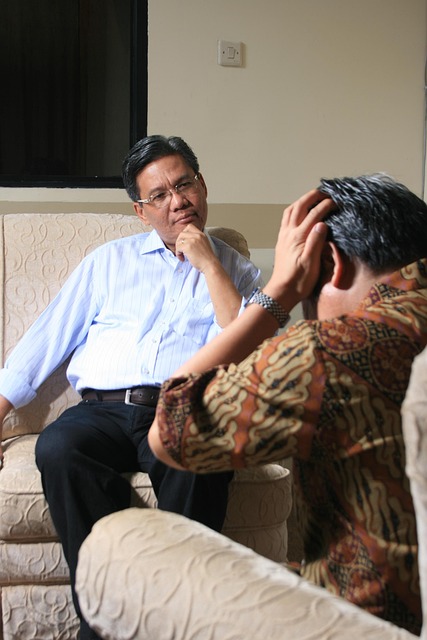Category: Tempe Christian Marriage Therapist
Tempe Christian Marriage Therapist: Navigating the Complexities of Modern Relationships
Introduction
In today’s fast-paced and often challenging world, maintaining healthy and fulfilling relationships is more important than ever. This is where Tempe Christian Marriage Therapists step in, offering specialized support and guidance to couples seeking to strengthen their bonds. This comprehensive article delves into the multifaceted world of Tempe Christian Marriage Therapy (TCMT), exploring its definition, global reach, economic impact, technological integrations, regulatory framework, challenges, real-world applications, and future prospects. By the end, readers will gain a profound understanding of this vital field and its transformative potential.
Understanding Tempe Christian Marriage Therapist: Unlocking the Basics
Definition:
Tempe Christian Marriage Therapy (TCMT) is a specialized form of counseling designed to help married couples navigate personal, emotional, and relational challenges. It draws from Christian principles and values to provide a supportive environment where partners can openly discuss issues, heal wounds, and rebuild connections.
Core Components:
- Spiritual Integration: TCMT incorporates spiritual practices and discussions, encouraging couples to explore their faith as a source of strength and guidance during difficult times.
- Scriptural Guidance: The therapy process is grounded in biblical teachings, offering principles for healthy relationships and conflict resolution.
- Individualized Approach: Each couple’s unique circumstances are considered, tailoring the therapy experience to address specific needs and goals.
- Communication Techniques: Teaching effective communication skills helps partners express their needs, wants, and fears more clearly, fostering deeper understanding.
- Conflict Resolution Strategies: Couples learn constructive ways to manage and resolve conflicts, promoting healthy debates and compromise.
Historical Context:
The roots of TCMT can be traced back to the early 20th century when organized marriage counseling services began gaining popularity. Over time, Christian counselors emerged as a distinct group, offering faith-based support within the broader counseling field. Today, TCMT has evolved into a significant niche, catering to a diverse range of couples seeking spiritual guidance alongside therapeutic intervention.
Significance:
TCMT plays a crucial role in addressing the growing need for relationship support. With modern lifestyles often leaving little time for meaningful connection, many couples struggle with communication issues, infidelity, and emotional distance. TCMT provides a safe space to address these challenges, helping partners rebuild trust, strengthen their bond, and enhance overall marital satisfaction.
Global Impact and Trends: A World-Wide Reach
TCMT has transcended geographical boundaries, making its presence felt across the globe. Its universal themes of love, commitment, and forgiveness resonate with people from diverse cultural backgrounds.
International Influence:
- North America: The United States and Canada have a well-established TCMT community, with numerous trained professionals offering services in both urban centers and rural areas.
- Europe: Countries like the UK, Germany, and France have seen a rise in Christian marriage counseling, often integrated into existing healthcare systems.
- Asia: In countries such as Japan and South Korea, TCMT is gaining acceptance, adapting to local cultural norms while maintaining its spiritual core.
- Africa: Africa’s diverse cultures are embracing TCMT, with some organizations focusing on providing accessible services in rural communities.
Key Global Trends:
- Digital Access: The rise of online therapy platforms has made TCMT more accessible, allowing couples to receive support from the comfort of their homes.
- Cultural Sensitivity: As TCMT spreads globally, professionals are increasingly adapting their practices to respect and incorporate local cultural beliefs and values.
- Integrated Approach: There is a growing trend towards integrating TCMT with other therapeutic modalities, such as cognitive-behavioral therapy (CBT), to offer more comprehensive treatment options.
Economic Considerations: Market Dynamics and Impact
The economic landscape of TCMT is dynamic, influenced by various factors that shape its growth and development.
Market Dynamics:
- Demand: The demand for relationship counseling, including TCMT, has been steadily increasing due to rising divorce rates, changing family structures, and the pressures of modern life.
- Service Availability: Access to TCMT varies across regions, with urban areas generally having more options than rural or underserved communities.
- Pricing: Fees for TCMT sessions can vary widely depending on location, counselor experience, and the length of therapy required.
Investment Patterns:
Private practices, non-profit organizations, and healthcare providers are the primary investors in TCMT. Many couples seek reimbursement through insurance plans, while others pay out-of-pocket. The growing acceptance of online therapy has also led to investments in digital platforms specializing in relationship counseling.
Economic Impact:
- Personal Growth: TCMT contributes to economic well-being by helping individuals and couples improve their relationships, leading to increased satisfaction and stability.
- Reduced Social Costs: Effective marriage counseling can lower societal costs associated with divorce, reduced productivity due to marital stress, and related social services.
- Tourism and Healthcare: In destinations known for their high-quality TCMT services, this industry contributes to local economies, attracting tourists seeking relationship support.
Technological Advancements: Revolutionizing Access and Delivery
Technology has played a pivotal role in transforming TCMT, making it more accessible, efficient, and adaptable to modern needs.
Online Therapy Platforms:
- Video Conferencing: Tools like Zoom and Skype have enabled couples to participate in TCMT sessions remotely, removing geographical barriers and expanding access.
- Specialized Apps: Various mobile apps offer digital tools for journaling, communication exercises, and progress tracking between therapy sessions.
- AI Support: Some platforms utilize artificial intelligence to provide initial assessments, basic guidance, and 24/7 support, augmenting human therapists’ work.
Social Media Engagement:
TCMT professionals increasingly use social media to raise awareness, share insights, and connect with clients. Platforms like Instagram and Facebook allow for targeted advertising, community building, and sharing success stories, fostering a sense of accessibility and hope.
Data Analytics:
- Client Tracking: Digital tools facilitate the collection of data on client demographics, therapy outcomes, and common challenges, aiding in service improvement.
- Personalized Treatment: Analyzing session notes and client feedback helps therapists tailor interventions to individual needs, enhancing treatment effectiveness.
Future Potential:
The integration of advanced technologies like virtual reality (VR) and augmented reality (AR) could offer immersive therapy experiences, especially for couples facing communication barriers or trauma. AI-driven personalized therapy plans may also become more prevalent, providing customized support based on individual progress.
Policy and Regulation: Navigating Legal Considerations
The regulatory landscape surrounding TCMT varies across jurisdictions, reflecting cultural and legal differences. Understanding these policies is essential for professionals and clients alike.
Licensing and Certification:
- Professional Requirements: Many countries mandate that TCMT practitioners obtain licenses or certifications from recognized bodies. These ensure a certain level of training and competence.
- Continuing Education: Regular training and workshops are often required to maintain licensure, ensuring therapists stay updated with the latest practices.
Insurance Coverage:
- Reimbursement Policies: Insurance providers differ in their coverage for TCMT. Some offer full reimbursement, while others may have specific criteria and limitations. Understanding insurance policies is crucial for both clients and therapists.
- Out-of-Network Providers: In areas with limited TCMT options, couples may need to consider out-of-network providers, which typically involve higher out-of-pocket expenses.
Data Privacy and Ethics:
- Confidentiality: Strict data privacy laws protect clients’ personal information. Therapists must adhere to ethical guidelines regarding the handling and storage of client records.
- Informed Consent: Clients should be fully informed about the nature of TCMT, potential benefits, and risks, providing voluntary consent for therapy.
Cultural Sensitivity in Policy:
Policymakers are increasingly recognizing the importance of cultural sensitivity in mental health services. This includes addressing the specific needs of diverse communities, ensuring equal access to TCMT, and promoting culturally competent practices among therapists.
Challenges and Criticisms: Overcoming Obstacles
Despite its numerous benefits, TCMT faces challenges and criticisms that require thoughtful consideration and strategic responses.
Main Challenges:
- Stigma: In some cultures and communities, seeking professional help for relationship issues may still carry a stigma, discouraging couples from accessing TCMT.
- Accessibility: Limited availability of TCMT in rural or low-income areas can hinder access, particularly for those with transportation challenges or financial constraints.
- Cultural Misalignment: Adapting TCMT to diverse cultural contexts is essential but complex, requiring therapists to stay informed and avoid imposing their own values.
- Integration with Mainstream Therapy: There is sometimes skepticism about combining religious and secular therapeutic approaches, highlighting the need for clear communication and mutual respect.
Strategies for Overcoming Challenges:
- Community Outreach: TCMT professionals can engage in community events, workshops, and educational programs to reduce stigma and increase awareness.
- Telehealth Expansion: Expanding telehealth services can improve accessibility, especially in underserved areas.
- Cultural Competency Training: Mandatory training for therapists on cultural sensitivity ensures they can provide effective and respectful care to a diverse client base.
- Collaborative Partnerships: Building partnerships with community organizations, schools, and healthcare providers can help TCMT reach more people.
Case Studies: Real-World Success Stories
Case Study 1: Overcoming Infidelity in a Christian Marriage
Sarah and David, a married couple in their late 30s, sought TCMT after discovering David’s emotional affair. They were struggling to rebuild trust and communication. Through TCMT, they learned forgiveness and reconnected through shared values, ultimately strengthening their bond.
Key Elements of Success:
- Scriptural Guidance: The therapist helped Sarah and David apply biblical principles of forgiveness and reconciliation, providing a spiritual framework for healing.
- Individualized Approach: Sessions were tailored to address their specific challenges, allowing them to progress at their own pace.
- Communication Techniques: They learned active listening and expressive communication skills, fostering deeper understanding and empathy.
Outcomes:
- Improved marital satisfaction and renewed commitment.
- Restored trust and enhanced emotional intimacy.
- Development of coping strategies for future challenges.
Case Study 2: Navigating Cultural Differences in a Cross-Cultural Relationship
Emily, a US citizen, married a man from Japan, and they sought TCMT to navigate cultural differences and communication barriers. The therapy sessions helped them understand each other’s perspectives and adapt to their dual cultural identities.
Strategies Employed:
- Cultural Education: Therapists provided insights into both Japanese and American cultural norms, helping the couple understand underlying values and expectations.
- Cross-Cultural Communication: They learned techniques for effective communication across cultural divides, including non-verbal cues and language nuances.
- Compromise and Respect: Sessions encouraged mutual respect and compromise, fostering a deeper understanding of each other’s perspectives.
Positive Results:
- Enhanced cultural sensitivity and appreciation for each other’s backgrounds.
- Improved conflict resolution skills, leading to fewer cultural misunderstandings.
- A stronger bond built on shared values and understanding.
Future Prospects: Looking Ahead in the Field
The future of TCMT is promising, with emerging trends and technological advancements shaping its direction.
Potential Growth Areas:
- Cross-Cultural Competency: As global connections grow, TCMT professionals will increasingly need to be adept at working with diverse cultural backgrounds, ensuring their practices are inclusive and respectful.
- Integrative Approaches: The integration of TCMT with other therapeutic modalities, such as mindfulness-based practices and cognitive-behavioral techniques, is likely to expand, offering more comprehensive treatment options.
- Digital Innovation: Virtual reality (VR) therapy sessions and AI-driven personalized plans could become mainstream, enhancing accessibility and tailoring treatments to individual needs.
Emerging Trends:
- Online Communities: TCMT professionals may create online communities or support groups for couples, providing peer-to-peer encouragement and shared experiences.
- Preventive Measures: There is a growing emphasis on preventive measures, with workshops and seminars focused on relationship skills to help couples avoid significant issues down the line.
- Wellness Integration: TCMT could incorporate wellness practices like yoga, meditation, and nutrition counseling to address the mind-body connection in relationships.
Strategic Considerations:
- Cultural Sensitivity Training: Ongoing training for therapists should emphasize cultural competency, ensuring they can adapt their practices to diverse clients.
- Digital Platform Collaboration: Partnering with online therapy platforms can expand reach and accessibility, especially for rural or underserved populations.
- Research and Evidence-Based Practice: Continued research is vital to validating TCMT’s effectiveness and informing best practices.
Conclusion: Embracing the Power of Transformation
Tempe Christian Marriage Therapy represents a powerful force in addressing the complex challenges faced by modern couples. Its ability to blend spiritual guidance with therapeutic intervention has proven effective in strengthening bonds, healing wounds, and fostering healthy relationships. As society continues to evolve, TCMT will play an increasingly vital role in supporting individuals and families through life’s ups and downs.
By navigating global trends, embracing technological advancements, addressing regulatory challenges, and staying true to its core principles, TCMT can ensure a bright future. The case studies presented highlight the tangible impact of this therapy on people’s lives, emphasizing its value and potential. As we move forward, TCMT professionals have an opportunity to shape a more connected, compassionate, and resilient global community.
FAQ Section: Answering Common Queries
Q1: What is the difference between traditional counseling and TCMT?
A: Traditional counseling may focus on a broader range of mental health issues, while TCMT specializes in helping married couples navigate relationship challenges from a Christian perspective, incorporating spiritual guidance and biblical principles.
Q2: How do I know if TCMT is right for me and my partner?
A: If you’re experiencing communication issues, infidelity, or emotional distance in your marriage, TCMT could be beneficial. It’s essential to have both partners willing participants, open to learning and change.
Q3: Can TCMT help us improve our communication?
A: Absolutely! TCMT teaches effective communication skills, helping couples express their needs and wants more clearly. This leads to deeper understanding and stronger connections.
Q4: Is TCMT only for Christian couples?
A: No, while TCMT draws from Christian principles, it is not exclusive. Couples of all faiths or none can benefit from the relationship-focused aspects of this therapy. The spiritual elements are tailored to each couple’s beliefs and values.
Q5: How do I find a qualified TCMT professional?
A: Reputable associations and online directories can help you locate certified TCMT practitioners in your area. Check their credentials, experience, and client testimonials to ensure they meet your needs.











